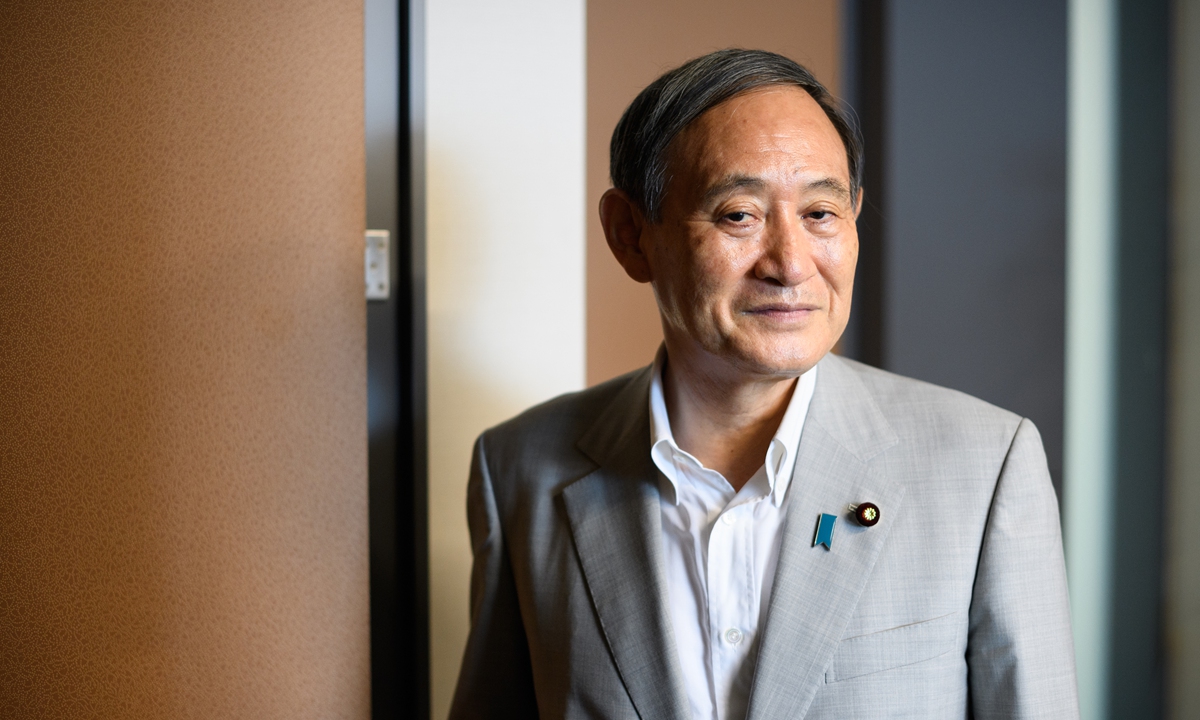China-Japan ties to remain stable after Yoshihide Suga wins LDP leadership to succeed Abe
By Xu Keyue Source: Global Times Published: 2020/9/14 17:19:04

Yoshihide Suga Photo: VCG
Japanese Chief Cabinet Secretary Yoshihide Suga won the election on Monday afternoon to become the new president of Japan's Liberal Democratic Party (LDP), with Suga set to become the East Asian country's next prime minister. Experts said Japan's relations with China would remain in steady hands as Suga will mostly retain Shinzo Abe's foreign policies.
The Chinese Foreign Ministry on Monday afternoon congratulated Suga on winning the LDP leadership election, saying that China is ready to work with the new LDP party leader to deepen cooperation in fighting the COVID-19 pandemic and on economic and social development, and push for the continuous improvement of China-Japan relations.
According to the Japan Times, Suga won by a landslide in the LDP presidential election Monday with 377 votes, or 70 percent of the total 534 votes, becoming the presumptive successor to outgoing Prime Minister Shinzo Abe.
The Japan Times report said Suga is expected to take the helm at a critical moment when the country has been hit by an epidemic, an economic slump and is grappling with national security issues.
Since the LDP-led coalition controls both houses of parliament, which elects the prime minister, the next leader of the party will also succeed Prime Minister Abe, who announced his resignation last month citing health reasons.
Analysts said that Suga was expected to be a "caretaker" to continue Abe's foreign policies and maintain ties between China and Japan.
Analysts pointed out that it is of no fundamental significance whether the next Suga administration will be a little better or worse toward China than the Abe administration as Japan's future attitude toward China has been roughly framed by the overall China-US relationship and Japan's national interests based on realistic conditions.
Tokyo will continue to base itself on its alliance with the US, while also developing its relations with China to maximize its own interests, analysts said.
Da Zhigang, director and research fellow of the Institute of Northeast Asian Studies at the Heilongjiang Provincial Academy of Social Sciences and chief expert at the Northeast Asian Strategic Studies Institute, told the Global Times on Monday that in general, stability would still be the top priority between China and Japan, but differences also will gradually widen.
In the context of this year's COVID-19 outbreak, subtle changes have taken place in China-Japan relations, Da said.
The differences between China and Japan include those over the national security law for Hong Kong, the origin of the raging pandemic, the Taiwan question, and the Diaoyu Islands, Da said, noting that Japan is also trying to reduce its dependency on China in its industrial chain.
Da stressed that in some areas, the differences between China and Japan will be effectively managed, but in some areas they will expand slowly, such as the conflict over Diaoyu Islands.
Analysts noted that China needs to continue to increase its attraction to Japan, weaken Japan's ability to restrain China's development, and gradually suppress Japan's idea of taking an opportunistic approach to China against the backdrop of deteriorating China-US relations.
RELATED ARTICLES: